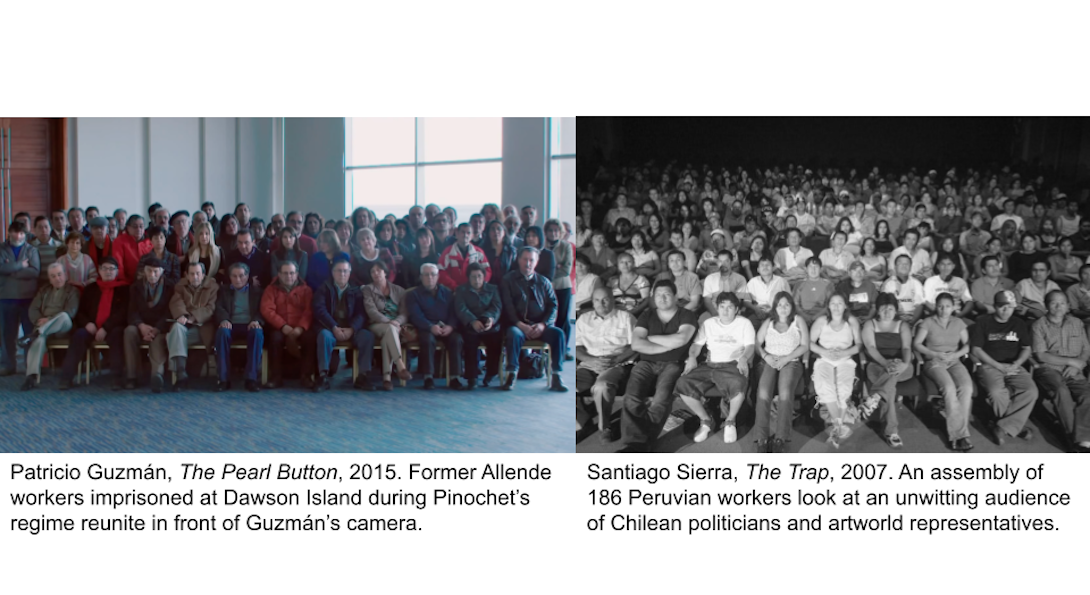Daniel Bataller successfully defends his dissertation “Post-Socialism in Chile and Spain: Critical Realism in the Art of Patricio Guzmán and Santiago Sierra”

Congratulations Daniel!
This dissertation investigates the aesthetic question of realism in the aftermath of Chile and Spain’s political transitions since the 1970s. As Pinochet’s 1973 coup ended Allende’s Chilean road to electoral socialism to establish a sixteen-year dictatorship, Franco’s four-decades of fascist regime concluded with his death in 1975. Both countries emerged on the post-1989 world stage as post-dictatorial democracies and the Spanish-speaking economic miracles of Latin America and Europe. However, their road to democracy has been treacherous. Their successes were paralleled by rises in inequality and the social death of the historical left tradition. The neoliberalism Pinochet imposed in Chile by dictatorial rule had a farcical version with the third way politics implemented in democratic Spain by the new liberal consensus.
Chilean filmmaker Patricio Guzmán and Spanish artist Santiago Sierra responded to the demise of socialism by producing images of civil alienation. While Guzmán’s aesthetics can be nostalgic and utopian and Sierra’s subversive and dystopian, this study challenges conventional readings and presents their work as part of a universal modernist tradition. Guzmán and Sierra’s critical realism narrates history from the standpoint of the participant, creating a sense of futurity and the means for getting there. Their production of forms of assembly invokes the beholder’s subjectivity as an inextricable part of the artwork, calling for the idea of cooperation that once conveyed the principle of solidarity with the defeated working class. This tactic has the power to be transformative in itself insofar as it can stimulate the imagination of a collective future by means of political organization.